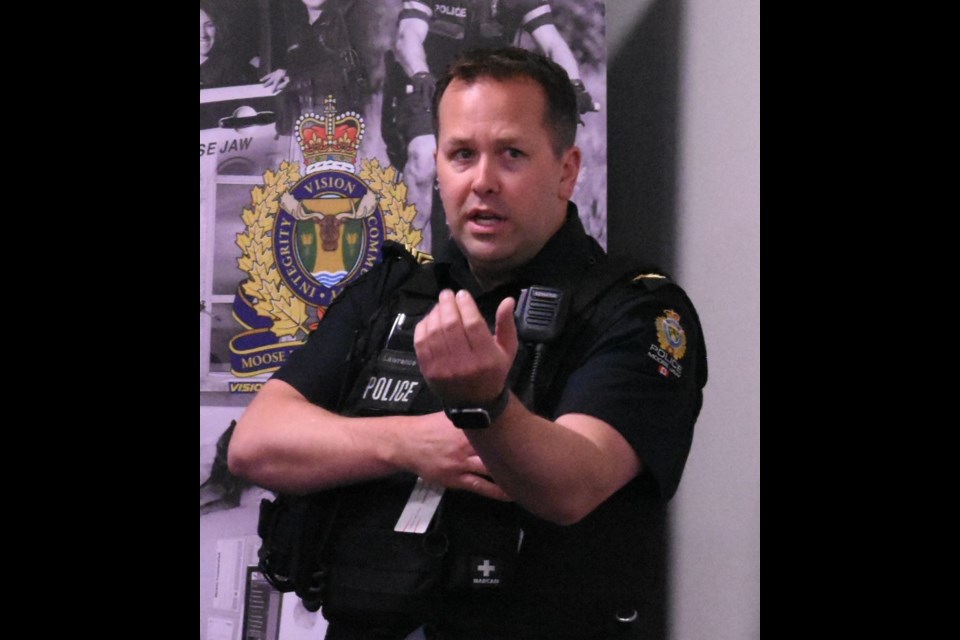Twelve downtown businesses have joined the Moose Jaw Police Service’s new anti-trespassing initiative, while other shops outside the pilot project area also appear eager to join the safety-focused program.
The police service (MJPS) launched the Trespass Prevention Program (TPP) on April 30 by opening online registrations on its website. The site has a page that business owners can visit to fill out a registration form that they can submit by email or in person.
The three-month pilot project is a public safety venture that allows officers to remove people from commercial properties who violate the Trespass to Property Act. This trespassing prevention program is an initiative that police agencies in other jurisdictions have implemented and that has proven successful.
For businesses that register and participate, the MJPS will install a TPP decal on the doors and windows of properties. This will allow officers to act as the owner/agent of the property and enforce the Trespass to Property Act.
Sgt. Ryan Lawrence, who is leading the pilot project, told police commissioners during their May 2 meeting that the agency set the project perimeter from Oxford Street to Manitoba Street and Second Avenue Northwest to Second Avenue Northeast to ensure it could manage the initiative.
However, a business owner outside that area reached out recently asking to participate, he continued. While the MJPS isn’t “sticking to a hard and fast rule” about when it will extend the boundaries — it will do so when possible — it is focusing on this area to determine the “bumps in the road” it may encounter.
Meanwhile, by May 1, a dozen businesses had registered with the pilot project, which is a decent number considering the initiative launched the day before, Lawrence said. To encourage more participation, the MJPS’s public information and strategic communication manager has been promoting this initiative through the organization’s social media channels.
Another way Lawrence has been encouraging downtown businesses to participate is by attending their morning staff meetings. That has been a helpful strategy, while it also allows him to educate staff on how to handle “problematic” people.
“So, we’ve had good luck with that, so we’re going to continue to do that,” he stated.
Currently, 85 per cent of patrol teams and communications centre employees are trained and knowledgeable about this pilot project, while the agency expects all the project decals/stickers to arrive soon so members can affix them to participating businesses, Lawrence said.
The project will produce data — based on complaints and investigations — that the MJPS can analyze while it can track that information on a daily, weekly, monthly and yearly basis, he continued.
This initiative is focused on addressing situations that occur when businesses are closed or vacant, which means the night shift will be handling these concerns, Lawrence remarked. However, officers will meet with business owners and employees during the day so they understand better what’s happening.
The police service also encourages businesses to receive training in crime prevention through environmental design (CPTED), a philosophy that says proper design and effective use of built areas can reduce crime and improve quality of life.
However, Lawrence said there has been very little interest — only two businesses have participated — even though the MJPS has been using its online communications tools and downtown foot patrols to spread the word.
Yet, during those morning meetings with owners and employees, he provides some advice from a CPTED perspective, which people appreciate.
“It is very helpful,” said Commissioner Nicole Swanson, noting owners don’t have to spend any money to acquire CPTED training and only need to tweak their business practices for a safer environment.
The next police board meeting is Thursday, June 13.




